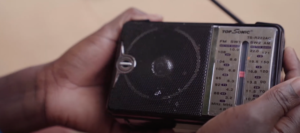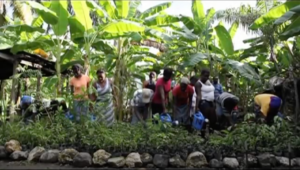School Preparation For Hurricane Season
Preparing schools in Haiti for hurricane season is essential due to the country’s vulnerability to extreme weather. First, conducting a thorough risk assessment can help identify buildings at high risk and evaluate their structural integrity. Developing a comprehensive hurricane response plan, which includes clear evacuation procedures and regular drills, ensures that staff and students are familiar with safety protocols.
Starts With Communication
 Effective communication is crucial; establishing reliable channels to alert families and staff about impending storms through SMS, social media, and local radio can enhance community awareness. Strengthening school infrastructure, such as reinforcing roofs and windows, can mitigate damage from high winds and debris. Additionally, schools should stockpile emergency supplies like food, water, and first aid kits, ensuring easy access during a crisis. Training teachers and staff in emergency response and educating students about hurricane safety through workshops further enhances preparedness.
Effective communication is crucial; establishing reliable channels to alert families and staff about impending storms through SMS, social media, and local radio can enhance community awareness. Strengthening school infrastructure, such as reinforcing roofs and windows, can mitigate damage from high winds and debris. Additionally, schools should stockpile emergency supplies like food, water, and first aid kits, ensuring easy access during a crisis. Training teachers and staff in emergency response and educating students about hurricane safety through workshops further enhances preparedness.
Collaboration
Collaboration with local authorities and participation in community preparedness programs can provide valuable resources and support. Finally, establishing recovery protocols will aid in quick assessments and rebuilding efforts after a hurricane, fostering resilience and safety within the educational environment.
Necessity Preparation
 When preparing for hurricane season in Haiti, it’s crucial to have an adequate supply of essential items to ensure safety and comfort. First and foremost, coolers and ice packs are vital for preserving food and medication during power outages. Sturdy coolers can keep perishables safe for extended periods, while the best ice packs can help maintain lower temperatures. Additionally, having non-perishable food items, such as canned goods, dried fruits, and snacks, ensures sustenance when fresh supplies are scarce. Clean drinking water is essential; storing enough bottled water for each family member is a priority.
When preparing for hurricane season in Haiti, it’s crucial to have an adequate supply of essential items to ensure safety and comfort. First and foremost, coolers and ice packs are vital for preserving food and medication during power outages. Sturdy coolers can keep perishables safe for extended periods, while the best ice packs can help maintain lower temperatures. Additionally, having non-perishable food items, such as canned goods, dried fruits, and snacks, ensures sustenance when fresh supplies are scarce. Clean drinking water is essential; storing enough bottled water for each family member is a priority.
First aid kits should be well-stocked with bandages, antiseptics, and any necessary medications. Flashlights, batteries, and solar-powered lamps are crucial for maintaining visibility during outages. Sanitation supplies, including hygiene products, trash bags, and soap, help maintain health and cleanliness. Finally, blankets and personal items, such as clothing and important documents, should be readily accessible for comfort and security during and after the storm. By assembling these supplies, families can enhance their preparedness and resilience against the impacts of hurricanes.